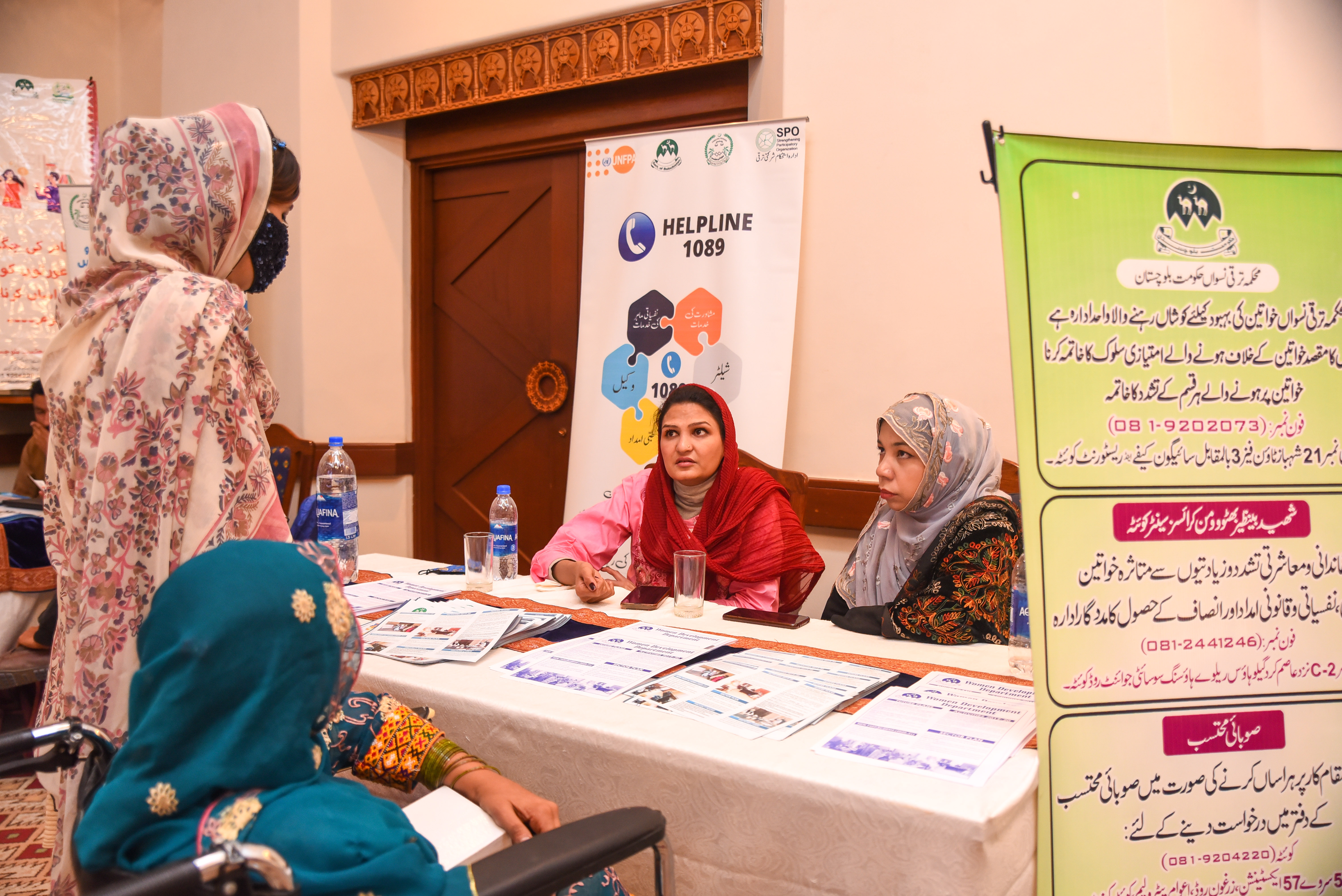Increasing the well-being of persons with disabilities
December 2, 2022

‘I am happy with who I am,’ says Shumaila, a young girl from Balochistan. ‘But people keep asking me strange questions. Once, a woman asked me why I was wearing sandals since, as a wheelchair user, she didn’t think I needed them.’
In Pakistan, as anywhere else, persons with disabilities experience stigma and discrimination driven by prejudices and stereotypes. Women and girls with disabilities, in particular, suffer from stigma based both on their gender and their disability – in addition to poverty for many of them. This stigma feeds significant physical, financial, informational, and communications barriers to accessing health services, including sexual and reproductive health services. For many people with disabilities, this also adds to employment discrimination and income discrimination.
Another girl, Washnaz, also hails from Balochistan. ‘As a visually impaired student, I face so many challenges.’ Washnaz does not want to burden her family and dreams of being financially independent. But even completing her studies is a route filled with pitfalls: ‘For the exams, a writer is allowed to sit with me and write my answers for me. But they usually demand compensation that my family cannot afford, from 150.000 to 20.000 rupees (67 to 90 dollars).’
To address stigma and discrimination against persons with disabilities – and particularly against women with disabilities – UNDP Pakistan has been leading innovative approaches hand in hand with the Partnership on the Rights of Persons with Disabilities (UNPRPD), UN Women and organizations of persons with disabilities.
We are focusing on increasing awareness of rights and access to basic services and building the capacity of institutions working with persons with disabilities to create inclusive workspaces.
This entails innovative approaches informed by behavioural insight, such as job fairs inviting employers and women with disabilities. Along with this, it is also essential to sensitize institutions and companies about their duty to fulfil their legal employment quotas of persons with disabilities – to create inclusive workspaces and make women with disability self-reliant and fight the stigma they face at the workplace.
* * *
Story by: Amna Syed, Human Rights Reporting Expert, Decentralization, Human Rights, & Local Governance Project, UNDP Pakistan

 Locations
Locations



